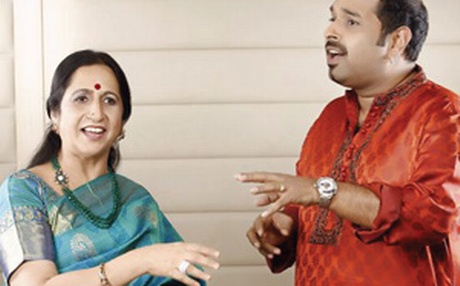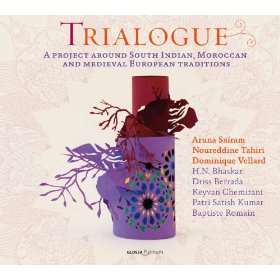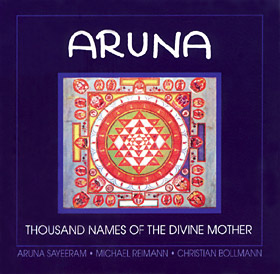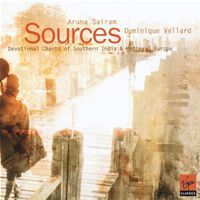Hey Shankar, Bolo Sairam
-

By Saranya Chakrapani
“Aruna Sairam is a rockstar,” beams Shankar Mahadevan. The young musician who has been jamming with the Carnatic legend at his Mumbai studio for a few months is elated to be playing host to her. What brings them together for the first time ever is a collaboration that will draw the likes of diehard Carnatic rasikas and fans of the upbeat, new age music in equal fascination. But it essentially is an affirmation to the supremely happy high that one gets being Indian. And so it is, Matrubhoomi — meaning ‘Motherland’ a celebration of India through music.
And when music is meant to move an individual transcending barriers of age, region and language, no one fits the bill better than the ace scholar Bharathiar himself. Matrubhoomi is based on a poem by Bharathiar, every line of which depicts an Indian state. “Elaborating on these lines we have songs in Tamil, Telugu, Kannada, Malayalam, Hindi, Marathi, Rajasthani and Sanskrit. That pretty much brings out the cultural diversity of the country in a nutshell,” says Shankar Mahadevan. “Bharathiar was beset by this sense of wonder.
He was in awe of everything he saw. And that I think is vital for any artist,” adds Aruna. Both musicians agree that it was their spontaneity that has brought out the best in this musical confluence.
“There’s a reason why Aruna Sairam’s place in this production cannot be taken by anyone else — it’s the sheer bundle of knowledge she has got, thanks to the extensive research she often does, and the effort with which she displays it,” Shankar says. “We didn’t have this concept in mind to begin with. When we started, we just knew what not to do. Neither of us wanted a typical Hindustani- Carnatic kutcheri or jugalbandi,” he adds. “We wanted to do something that involved various genres of music and the audience would love listening to,” Aruna says.
“And it is indeed powerful. There were times during the rehearsals when both Shankar and I would just stop singing and he’d say, ‘Aruna ma, I’m so happy that I was born in this country. I’d like to be born here over and over again.’ And my eyes would well up with tears. We would then know that this is exactly what we wanted our music to do,” adds Aruna.
“When you are singing to a vast audience, you gradually lose yourself in the depth of emotion that surges from within and have no hold of the physical reality around you. And the audience too loses itself and travels with you. That’s my spiritual moment,” she smiles.
Related Albums

Trialogue
Published : 2012
By : Glossa Music
Aruna - Thousand Names...
Published : 1995
By : Lichthaus Music...
Sources
Published : 2000
By : EMI Records / Virgin Classics - France
Related Concerts
- HEAVEN & EARTH 2018
On : Friday, February 9, 2018 - Ojai Music Festival 2017
On : Sunday, June 11, 2017 - Sammohanam - A celebration of Music and Dance 2017
On : Friday, February 17, 2017 - HEAVEN & EARTH at Sacred Music Festival 2018
On : Sunday, February 4, 2018

 Photos
Photos PDF
PDF